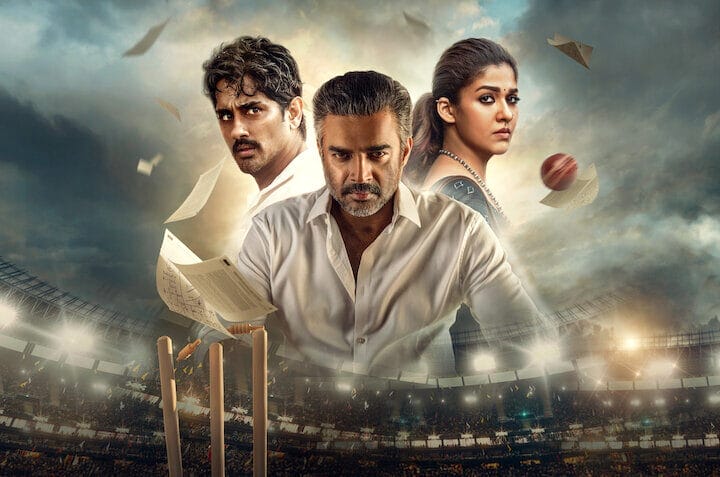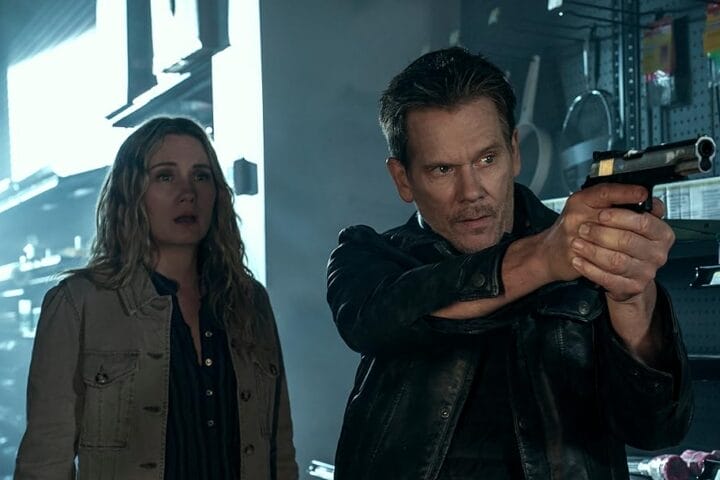You know the name, you’ve seen the movies. The iconic director Steven Spielberg has made some of the greatest films in history. Not only is he an Academy Award-winning director, he also serves as a producer, screenwriter and even a composer.
Throughout his career, he’s created some of the most memorable and iconic films of all time. From his early works like Jaws and E.T., to his later blockbusters like the Indiana Jones trilogy and Jurassic Park series, Spielberg has consistently delivered stunning visuals alongside captivating stories that will forever stay ingrained in our memories.
In this article, we’ll take a look at Spielberg’s expansive catalog of work, observing just how he manages to create such mesmerizing effects on screen every time. So come with me as we explore Spielberg’s journey from humble beginnings to one of Hollywood’s greatest directors!

A Look at Steven Spielberg’s Best Films
If there has ever been a director who could be defined as a “magician of cinema,” it would have to be Steven Spielberg. With almost four decades of critically-acclaimed films and iconic hits, Spielberg has sold millions of movie tickets and won (at least) seven Academy Awards.
Let’s take a look at some of the best films in Spielberg’s impressive filmography. Whether you prefer action-packed blockbusters like Jaws, heartwarming family favorites like E.T., or thrilling historical epics like Schindler’s List, his movies continue to capture the imaginations of viewers around the world.
In Saving Private Ryan, Spielberg creates an intense account of World War II that is both realistic and dramatic, thanks largely to its brilliant cinematography. The unforgettable beach storming scene alone is enough to make this movie one of his best-known works. Meanwhile, Catch Me If You Can features Leonardo DiCaprio as Frank Abagnale Jr., whose adeptness with con artistry leads him into wild adventures throughout the 1960s and 70s. DiCaprio’s charming swindling keeps you riveted right to the very end!
Finally, Spielberg’s tongue-in-cheek science fiction classic Jurassic Park brings the excitement off the screen and into reality with its revolutionary combination of animatronics and computer graphics effects. With a vivid narrative supported by breathtaking visuals and real thrills, this groundbreaking film transported us into an entirely new world – one filled with dinosaurs!
Exploring His Influences and Techniques
With an impressive filmography that spans over four decades and has won countless awards, Steven Spielberg is one of the most prolific and influential filmmakers of all time. To capture the full scope of the magic he creates, let’s take a closer look at his influences and techniques.
Spielberg’s earliest influences were classic Hollywood directors such as William Wyler and Alfred Hitchcock, which explains why his films often feature a thrilling narrative combined with emotional depth. As he grew as a filmmaker, Spielberg also drew from his own experiences as a child to evoke nostalgia in his works. It’s this blend of classic Hollywood film techniques with personal touches that makes him so unique.
In addition to storytelling techniques from classic Hollywood directors, Spielberg also relies heavily on editing to create tension and suspense in his films. His signature use of close-up shots gives viewers an immersive experience that pulls them into the story. He also uses sound design to create tension and help paint a picture with sound, making us feel like we’re right in the middle of the action.
Capturing the Human Experience in Spielberg’s Films
If you’ve seen a Spielberg movie, you know that he has a knack for capturing the emotional side of the human experience. Whether it’s the emotional complexity of relationships in Catch Me If You Can or the power of determination in Minority Report, Spielberg’s characters feel like real people who face struggles that many of us can relate to.
In addition to making his characters relatable, he has a way of making viewers connect with them and recognize the reality of tough situations. From E.T., which explores the loss of innocence and childhood, to Schindler’s List and Saving Private Ryan, which portray the horrors of war, Spielberg puts the audience right at ground zero in the middle of whatever is going on.
He also adds some lightheartedness here and there, usually paired with a powerful moral or lesson. Open any one of his movies—Jurassic Park, The Post, The Terminal—and see if you don’t find moments that make you laugh and think at the same time. After all, it takes a real visionary to make magic out of something so ordinary as everyday life
The Legacy of Steven Spielberg
It’s impossible to think of Steven Spielberg without reflecting on the sheer magnitude of his success. From 1982’s E.T. The Extra-Terrestrial, to Jurassic Park in 1993, Indiana Jones in 1981, and Schindler’s List in 1993, Spielberg has made some of the most iconic and beloved films ever released. In total, he’s earned three Oscars, three Golden Globes and two Emmys.
Throughout his life, Spielberg has influenced countless filmmakers and popular culture in general – his work continues to inspire people from all walks of life. It’s simply impossible to overstate the impact that Spielberg’s movies have had on our lives. Some of his most popular works have become ingrained into the cultural landscape and will always be remembered:
- Jaws (1975) – Still considered one of the most influential horror films ever made
- E.T: The Extra- Terrestrial (1982) – One of cinema’s most beloved alien stories
- Jurassic Park (1993) – A classic blend of action-adventure with a relentless dinosaur menace
- Schindler’s List (1993) – A powerful movie about the Holocaust
- Saving Private Ryan (1998) – A classic war movie that was lauded for its realistic portrayal
- Catch Me if You Can (2002) – An entertaining story that highlights Leonardo DiCaprio’s talents
- The Terminal (2004) – A tale about an immigrant struggling to make a new home in America
- Munich (2005) – A thought-provoking look at violence’s aftermath
Variety in Spielberg’s Works: Genres, Settings and Characters
One thing about Steven Spielberg is that he’s incredibly versatile. He doesn’t just make one type of movie; he makes a whole range of them, from dramatic family films all the way to intense, dark war epics. And that range of genres isn’t the only thing that makes his work special—he’s also known for his ability to bring characters and settings alike to life.
Genres
Spielberg has created works in almost every genre known to film and TV—drama, comedy, romance, science fiction, horror, westerns…the list goes on. He might be most well-known for his action-packed blockbusters like Jaws and Jurassic Park, but Spielberg has also earned critical acclaim with more nuanced works such as Schindler’s List and The Color Purple. And let’s not forget that in 2019 he even directed an episode of the sci-fi anthology show Amazing Stories.
Settings
From the beaches of Massachusetts to Munich during World War II; from alien planets to busy city streets; from the underground bunkers of religious cults to the inner workings of government agencies—Spielberg has taken us on unforgettable visual journeys in each and every one of his works. He has a knack for taking us into fantastic worlds that are as vivid as they are real.
Characters
Behind every setting and genre is a slew of characters you won’t forget anytime soon. All throughout Spielberg’s career he’s crafted complex protagonists and antagonists who have forever left an impression on us viewers: from E.T., Indiana Jones and Elliott in *E.T. The
Appreciating Spielberg: Awards, Accolades & Analyzing His Impact
It’s difficult to talk about Steven Spielberg without talking about awards and accolades—he has a lot of them. After all, you don’t get to be one of the most successful movie directors in history without a few nods from the Academy!
His Awards & Accolades
Spielberg has been nominated for, and won, several Academy Awards, Golden Globe Awards, Primetime Emmy Awards and Directors Guild of America awards. He’s even received several honorary degrees from universities around the world. In addition to his numerous awards and accolades, Spielberg is also a three-time winner of the Kennedy Center Honors, an accolade only 18 others have achieved.
Analyzing Impact
When we look at Steven Spielberg’s filmography, it’s easy to see that he’s had such an impact on our culture—not just because of the number of times his films have been seen over the years, but because they’ve made us laugh and cry. He makes us think too: his movies inspire us to take action in our own lives and communities. When his movies come out today, they still capture our imaginations and make us excited for more! Spielberg is truly a master of his craft.
At the end of the day, there’s no denying that Steven Spielberg has made an indelible mark on the world of cinema and pop culture. From the heights of Academy Award-winning epics to the depths of family-friendly fantasy, Spielberg has provided us with an entire catalog of cinema classics. He’s a master at manipulating emotion and pushing boundaries, and he’s proven that he’s still got it after almost five decades in the game. So, next time you’re looking for something to watch, why not turn to the work of the great Steven Spielberg? There’s sure to be something for everyone in his expansive filmography.
Steven Allan Spielberg is an American film director, producer, and screenwriter.[1] He began his career in the New Hollywood era and is currently the most commercially successful director of all time. Spielberg is the recipient of various accolades, including three Academy Awards (with two for Best Director), a Kennedy Center honor, a Cecil B. DeMille Award, and an AFI Life Achievement Award. (From Wikipedia)
Steven Spielberg Quotes
Technology can be our best friend, and technology can also be the biggest party pooper of our lives. It interrupts our own story, interrupts our ability to have a thought or a daydream, to imagine something wonderful, because we’re too busy bridging the walk from the cafeteria back to the office on the cell phone.
Steven Spielberg
The delicate balance of mentoring someone is not creating them in your own image, but giving them the opportunity to create themselves.
Steven Spielberg














